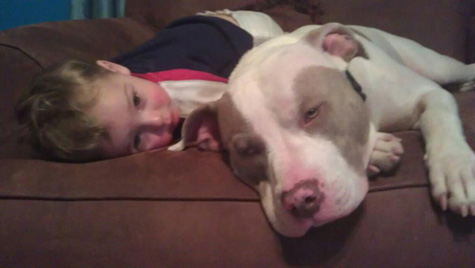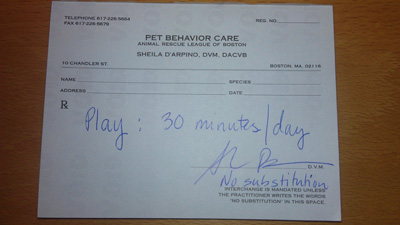Let's Play!
Playfulness is at the top of many people’s list of why they like dogs. Play is a great way to have fun and exercise. When you have a young dog in your house, play isn’t an option; it’s a requirement, if you want to prevent your dog from playing with things that aren’t appropriate dog toys.
My most recently adopted dog, Mister, is very happy to entertain himself with my two year old’s stuffed animals and toys, if I am not watching him carefully. The toys quickly get destroyed, which is fun for Mister, but also results in a VERY unhappy little boy. MANAGING our dogs’ playfulness is crucial, to ensure a happy home… directing them toward appropriate toys and playing WITH them, and keeping inappropriate toys out of reach.

I consider myself very lucky; play is an important part of my life, at home and at work. At work, play provides our shelter dogs with physical activity, social engagement (with people or dogs), and stress relief. I was really interested to read this article about play written by Bill Blakemore. He talks about play in different species such as people, dogs, cats, and polar bears. Play keeps our minds active and open to new ideas; whereas an absence of play behavior can be a sign of serious problems such as depression and even violence.
Just as written in the article above, not all dogs know how to and/or enjoy playing with people, toys, or other dogs. At the Center for Shelter Dogs, we recommend doing a play style assessment with each dog, to determine whether the dog likes to play with people, and what types of play the dog enjoys. Dogs that enjoy playing with other dogs participate in our playgroups. Dogs that don’t seem to enjoy playing spend time with us so that we can attempt to find something that the dog enjoys, and provide him with mental stimulation. Sometimes nosework games are a great way to get shy or fearful dogs interested in interacting with people. If I could write a prescription for play, for every single dog and every single person, I would… we would all benefit from it!

– Dr. Sheila D’Arpino, Senior Applied Animal Behaviorist at The Center for Shelter Dogs
